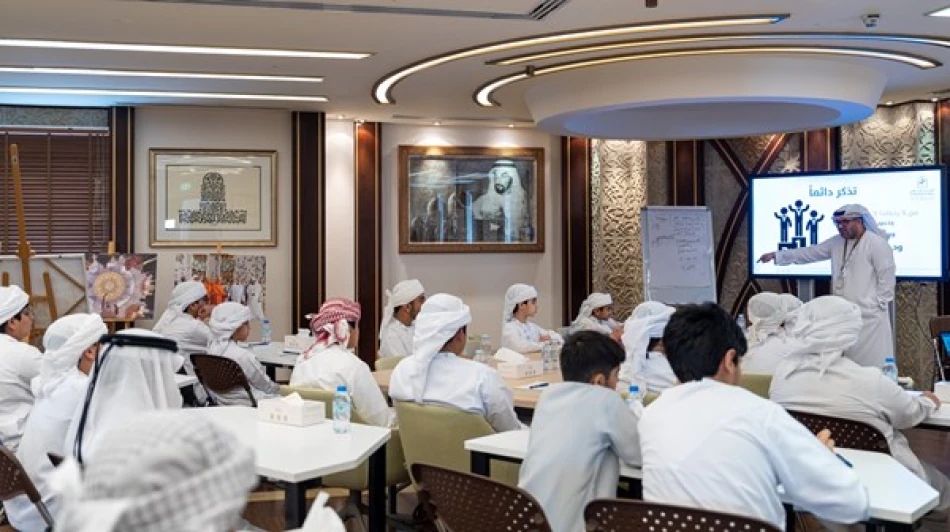
Sheikh Zayed Grand Mosque Center Launches 13th Edition of 'Little Cultural Guide' Program
UAE's Sheikh Zayed Grand Mosque Launches Cultural Ambassador Program to Build Next Generation of Heritage Guides
The Sheikh Zayed Grand Mosque Centre has launched the 13th edition of its "Little Cultural Guide" program, an ambitious initiative that trains young Emiratis aged 11-17 to become cultural ambassadors at one of the world's most visited Islamic landmarks. With 498 graduates already produced and a 100% Emiratization rate for cultural tour specialist positions, the program represents a sophisticated approach to preserving Islamic heritage while building local expertise in the tourism sector.
Strategic Youth Development Through Cultural Education
The program operates under the mosque's "Builder Youth" umbrella, targeting students across two age groups during summer sessions running from July 14-24 and August 4-14. Participants receive comprehensive training in public speaking, cultural presentation skills, and the artistic elements of Islamic civilization, positioning them to deliver guided tours at an internationally significant religious site.
This initiative goes beyond simple tour guide training. Students learn about the legacy of Sheikh Zayed bin Sultan Al Nahyan, the UAE's founding father, while developing communication skills and overcoming performance anxiety. The curriculum includes workshops on "The Influential Speaker" and "Mosque Aesthetics and Practical Application," treating art as a universal language for cross-cultural communication.
Economic and Cultural Impact
The program's 100% Emiratization rate for cultural tour positions demonstrates how heritage tourism can create meaningful employment opportunities for nationals. As the UAE continues diversifying its economy away from oil dependence, cultural tourism represents a growing sector where local expertise provides authentic value that cannot be easily replicated.
Regional Context and Competitive Positioning
While neighboring countries like Saudi Arabia invest heavily in mega-tourism projects through Vision 2030, the UAE's approach focuses on deepening existing cultural assets through human capital development. This strategy mirrors successful models in countries like Japan, where cultural ambassadors enhance visitor experiences at historic sites, creating higher-value tourism rather than simply increasing visitor numbers.
Building Soft Power Through Youth Engagement
The program serves multiple strategic objectives beyond tourism. By training young Emiratis to articulate Islamic heritage and UAE history to international visitors, the initiative builds the country's soft power capabilities. These cultural ambassadors become living representatives of Emirati values and Islamic civilization, potentially more impactful than traditional diplomatic or media channels.
The emphasis on early-age engagement—starting from age 11—suggests long-term thinking about cultural preservation and national identity. As the UAE's expatriate population continues to outnumber nationals, programs like this ensure Emirati youth remain connected to their heritage while developing skills for a knowledge-based economy.
Implications for Heritage Tourism Globally
The Sheikh Zayed Grand Mosque program offers a replicable model for other nations seeking to monetize cultural heritage while ensuring authentic representation. Unlike superficial tourism development that often displaces local communities, this approach creates ownership and expertise among nationals, potentially leading to more sustainable and respectful visitor experiences.
For the 498 program graduates, the skills developed extend far beyond tourism—public speaking, cultural literacy, and cross-cultural communication capabilities that serve them in any professional context. This represents human capital investment disguised as cultural programming, a sophisticated approach to workforce development that other Gulf states may seek to emulate.
Most Viewed News

 Layla Al Mansoori
Layla Al Mansoori






